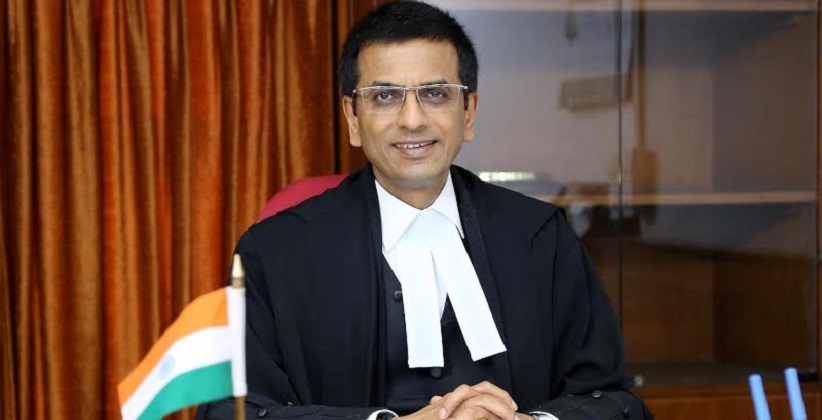Ever since Justice DY Chandrachud took over as Chairperson of eCommittee of the Supreme Court of India several measures have been taken to strengthen the IT infrastructure in the Judicial Domain.
In its endeavor to ensure that urgent matters are heard promptly during the period of the lockdown occasioned by the outbreak of COVID - 19 and that parties are not required to come to court for other cases listed for hearing, the eCommittee of the Supreme Court assembled through video conferencing in the morning.
The Chairperson, Dr. Justice Chandrachud, reviewed the measures which have been initiated by the High Courts in their respective jurisdictions. After noting the difficulties faced by some states in e-filing, in the operation of virtual courts, and in the course of hearing cases through video conferencing, the Chairperson proposed that a meeting of the Chairpersons of the Computer committees of the High Courts be organised at 4 pm. Shri. Ramesh Babu, member of the eCommittee be contacted all Chief Project Coordinators of the Computerisation projects in the High Courts to ensure that all the Chairpersons were provided with information on the tentative agenda of the meeting.
The Chairpersons of the Computer Committees of the High Courts conducted a review of the situation in their states and participated in the meeting chaired by Dr. Justice Chandrachud.
The Meeting was also attended by Sh. Surinder S Rathi and Sh. Kuldeep Singh Members of eCommittee of Supreme Court and Sh. Ashish Shiradhonkar, Sr. Technical Director of NIC, Pune.
The Chairpersons shared with the participants the steps taken and the challenges faced in their states. The Chairpersons agreed with the suggestion of Dr. Justice Chandrachud, that while taking prompt measures at this time of crisis, the use of technology must be institutionalized even after the lockdown is lifted and normalcy returns. It was agreed that E-filing in such modes as may be practicable may be used during the period of lockdown.
Dr.Justice Chandrachud also informed the participants about an e-filing module which is in an advanced stage of development in the Supreme Court. An e-filing module has been developed for trial courts.
Justice Chandrachud also suggested that the High Courts may share the utilities which have been developed in their courts for being deployed wherever they are found to be useful. Full use of facilitation centers wherever available, or creating facilitation centers with facilities for e-filing and video conferencing at the entrances of court complexes in portacabins was suggested. Equipment required or manpower could for the time being be deployed from the existing strength since all courts in a complex are unlikely to be functioning during the lockdown.
The Chairperson also highlighted that a software patch has been developed for automatic posting of dates of hearing of cases in CIS 3.2, with a facility of bulk adjournment of cases during the lockdown and for sending SMSs to litigants and lawyers about the next dates. This may be immediately deployed to obviate visits by litigants and lawyers to the courts during this period.
While ideally, judicial officers and advocates should work from their homes, it was left to the high courts to decide to what extent this was feasible. The question of the live streaming of proceedings held by video conferencing was also discussed. Based on an assessment of technical issues like availability of sufficient bandwidth and facilities of hosting the proceedings on dedicated servers, it was felt that the recordings should be hosted on-court web-sites by the next day. This will ensure that people have access to court proceedings.
It was noticed that virtual courts were functioning only in a few states though the software has been provided to all states by the NIC team at Pune. The urgent need to start virtual courts, not only for traffic challans but also for promptly dealing with summary violations was emphasized.
Dr. Justice Chandrachud suggested that that the High Courts may use the un-utilized funds from Phase II of the E-courts project for meeting immediate needs while observing financial norms. He assured that demands for funds or software will be promptly processed by the E-committee and submitted to the Department of Justice.
Dr. Justice Chandrachud placed on record his appreciation of the efforts undertaken by officials of all courts under the guidance of the Chairpersons of the Computer committees of the High Courts.
Ld. Chairpersons agreed that they would promptly start working on the lines decided.
The meeting concluded with a vote of thanks by the Justice R C Chavan, Vice-Chairperson of the eCommittee.








